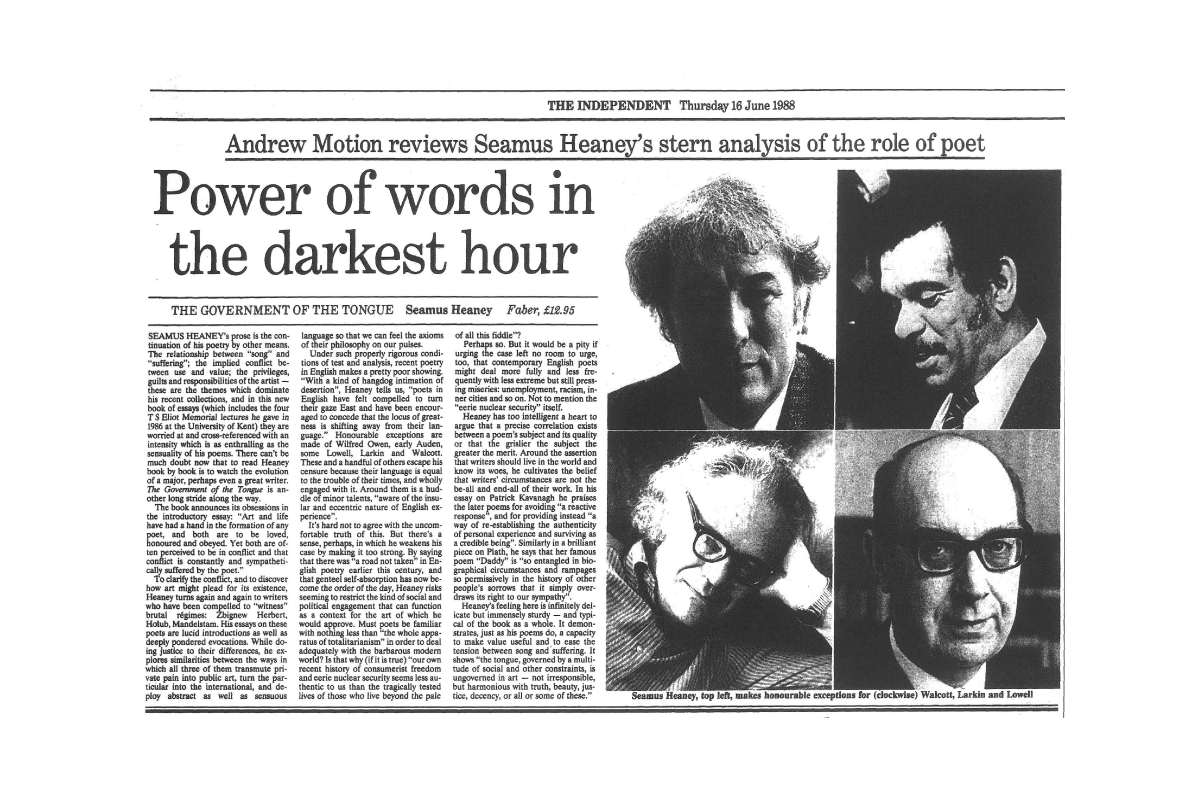One great poet on another
Andrew Motion, who became Poet Laureate in 1999, reviews the writing of Seamus Heaney

Your support helps us to tell the story
From reproductive rights to climate change to Big Tech, The Independent is on the ground when the story is developing. Whether it's investigating the financials of Elon Musk's pro-Trump PAC or producing our latest documentary, 'The A Word', which shines a light on the American women fighting for reproductive rights, we know how important it is to parse out the facts from the messaging.
At such a critical moment in US history, we need reporters on the ground. Your donation allows us to keep sending journalists to speak to both sides of the story.
The Independent is trusted by Americans across the entire political spectrum. And unlike many other quality news outlets, we choose not to lock Americans out of our reporting and analysis with paywalls. We believe quality journalism should be available to everyone, paid for by those who can afford it.
Your support makes all the difference.16 June 1988
Seamus Heaney’s prose is the continuation of his poetry by other means. The relationship between “song” and “suffering”; the implied conflict between use and value; the privileges, guilts and responsibilities of the artist – these are the themes which dominate his recent collections, and in this new book of essays they are worried at and cross-referenced with an intensity which is as enthralling as the sensuality of his poems. There can’t be much doubt now that to read Heaney book by book is to watch the evolution of a major, perhaps even a great, writer. The Government of the Tongue is another long stride along the way…
…But… by saying that there was “a road not taken” in English poetry earlier this century, and that genteel self-absorption has now become the order of the day, Heaney risks seeming to restrict the kind of social and political engagement that can function as a context for the art of which he would approve. Must poets be familiar with nothing less than “the whole apparatus of totalitarianism” in order to deal adequately with the barbarous modern world? Is that why (if it is true) “our own recent history of consumerist freedom and eerie nuclear security seems less authentic to us than the tragically tested lives of those who live beyond the pale of all this fiddle?”
Perhaps so. But it would be a pity if urging the case left no room to urge, too, that contemporary English poets might deal more fully and less frequently with less extreme but still pressing miseries: unemployment, racism, inner cities and so on. Not to mention the “eerie nuclear security” itself.
Join our commenting forum
Join thought-provoking conversations, follow other Independent readers and see their replies
Comments